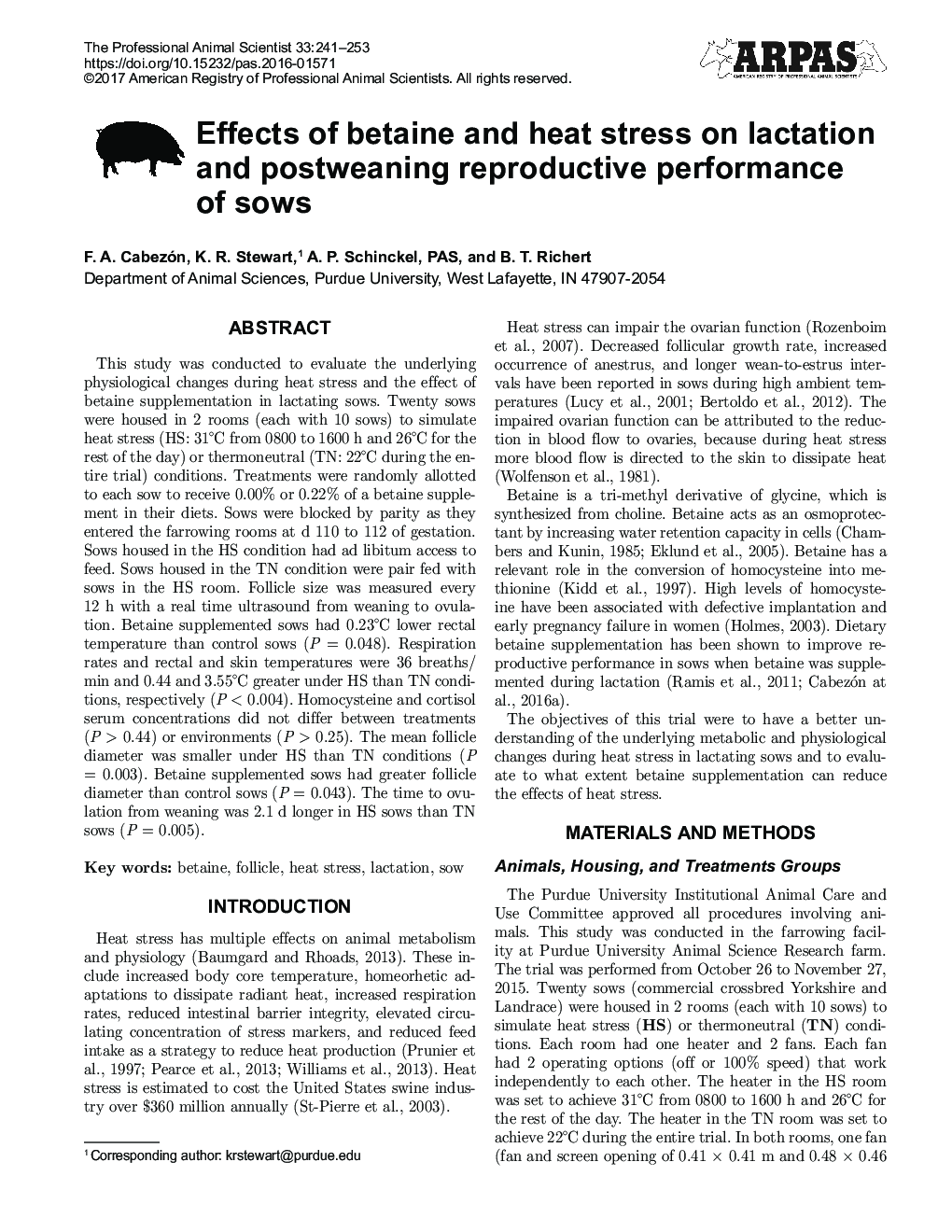| Article ID | Journal | Published Year | Pages | File Type |
|---|---|---|---|---|
| 8503771 | The Professional Animal Scientist | 2017 | 13 Pages |
Abstract
This study was conducted to evaluate the underlying physiological changes during heat stress and the effect of betaine supplementation in lactating sows. Twenty sows were housed in 2 rooms (each with 10 sows) to simulate heat stress (HS: 31°C from 0800 to 1600 h and 26°C for the rest of the day) or thermoneutral (TN: 22°C during the entire trial) conditions. Treatments were randomly allotted to each sow to receive 0.00% or 0.22% of a betaine supplement in their diets. Sows were blocked by parity as they entered the farrowing rooms at d 110 to 112 of gestation. Sows housed in the HS condition had ad libitum access to feed. Sows housed in the TN condition were pair fed with sows in the HS room. Follicle size was measured every 12 h with a real time ultrasound from weaning to ovulation. Betaine supplemented sows had 0.23°C lower rectal temperature than control sows (P = 0.048). Respiration rates and rectal and skin temperatures were 36 breaths/min and 0.44 and 3.55°C greater under HS than TN conditions, respectively (P < 0.004). Homocysteine and cortisol serum concentrations did not differ between treatments (P > 0.44) or environments (P > 0.25). The mean follicle diameter was smaller under HS than TN conditions (P = 0.003). Betaine supplemented sows had greater follicle diameter than control sows (P = 0.043). The time to ovulation from weaning was 2.1 d longer in HS sows than TN sows (P = 0.005).
Related Topics
Life Sciences
Agricultural and Biological Sciences
Animal Science and Zoology
Authors
F.A. Cabezón, K.R. Stewart, A.P. PAS, B.T. Richert,
